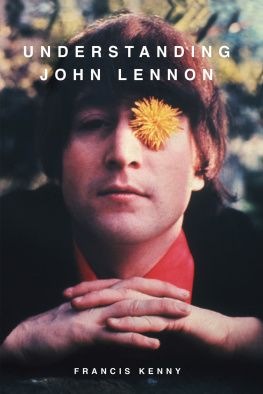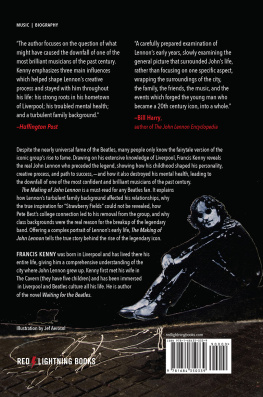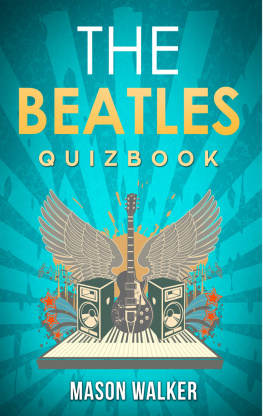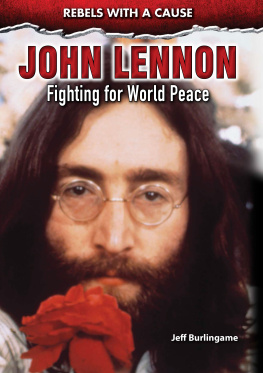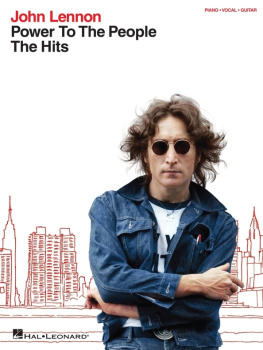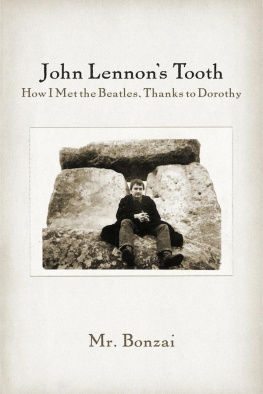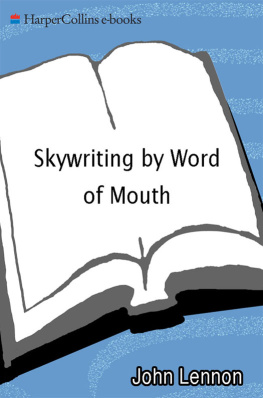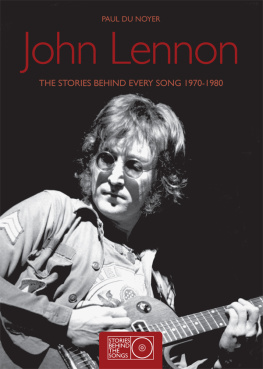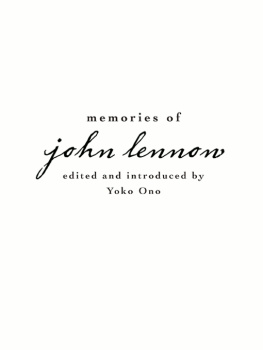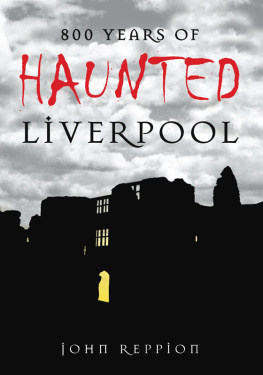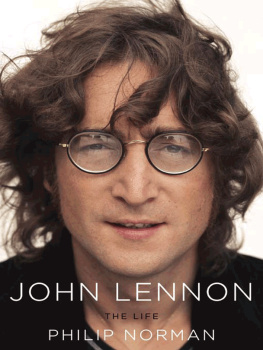Liverpool is always on guard. They know that the English look up and over with suspicion and doubt, stumped by the language, needled by the snappy, mongrel confidence, outmanoeuvred by the fast logic-shredding wit. The city is also always wary at what might appear over the horizon, from the endless heavy sea, at what unknown force, for good or evil, might wash up on their vulnerable, open shore.
Paul Morley, The North (And Almost Everything In It)

Francis Kenny 2010
All rights reserved. No part of this book may be reproduced in any form without the written permission of the publisher, Shepheard-Walwyn (Publishers) Ltd
First published in 2020 by
Shepheard-Walwyn (Publishers) Ltd
107 Parkway House, Sheen Lane,
London SW14 8LS
www.shepheard-walwyn.co.uk
British Library Cataloguing in Publication Data A catalogue record of this book is available from the British Library
ISBN 978-0-85683-532-2
Typeset by Fakenham Prepress Solutions, Fakenham, Norfolk NR21 8NL
Printed and bound in the United Kingdom by Short Run Press, Exeter
Foreword by Bill Harry
J OHN LENNON could only have been born in Liverpool and Francis Kenny certainly provides an answer why in this book, analysing Johns life and what made John Lennon become John Lennon.
It was due not only to the times John lived through and was born into, but the thread that wound throughout the citys history, including its Celtic heritage, due to its existence as one of the greatest ports in the world.
Capturing history before it fades and disappears forever is difficult because even recent history has its many different aspects, seen from different points of view, which often distort the reality of events. However, dedicated research often continues to uncover facts which have been contrary to events that really happened, such as the fact that John was never born during a heavy air raid, which so many previous books have contended.
This isnt a roller-coaster ride, skipping through Johns life, but a carefully prepared examination of his early years, slowly examining the general picture that surrounded Johns life, rather than focusing on one specific aspect, wrapping the surroundings of the city, the family, the friends, the music and the events which forged the young man who became a 20th-century icon into a whole.
Some of the conclusions in Johns personal story might prove controversial because time and the passing of many of the main characters, including John himself, leave us with no option but to analyse what has previously been said and documented, taking into consideration the different viewpoints made at the time.
Early in 1960 John Lennon, Stuart Sutcliffe, Rod Murray and I formed The Dissenters, whose aim was to make Liverpool famous! We figured that Liverpool had more than its fair share of musicians, writers, comedians, artists and sculptors. We four would attempt to do this in our various ways John with his music, Stuart and Rod with their painting and me with my writing. (A plaque, made by my art school friend Fred OBrien, dedicated to the place where we made our vow is to be found in Ye Cracke, Rice Street.)
Francis Kenny is another example of what we were aiming to achieve to put the light on creative people from the city. He was born in the Toxteth area of the city and left school with no qualifications, worked for 15 years in the construction industry and then entered a vacuum of unemployment before attending Coleg Harlech, an adult residential college in North Wales, where he achieved a Diploma in Political Philosophy and Economics. This was followed by a period at Liverpool University where he completed a BA Honours in Economics and Politics and Sociology. He also qualified as a teacher after completing a Postgraduate Course in Education at Bolton University. He then completed MAs in Urban Regeneration at Hope University and Screen Writing at Liverpool John Moores University.
Francis began writing 15 years ago and has penned a dozen screenplays, a novel, Waiting For the Beatles and a crime novel, All I Ever Wanted, among other works, including a stage play.
Francis was to tell me that his book aims to present a below the surface alternative view of Johns creative and emotional make-up.
This work is now endorsed by a former Dissenter. Read, enjoy and learn.
Regards,
Bill Harry, Founder of Mersey Beat
__________________
Bill Harry was born in Liverpool and attended Liverpool Art College where he met and became good friends with John Lennon and Stuart Sutcliffe. While at college, Bill developed an interest in journalism which led to his founding of Mersey Beat magazine, whose first print run of 5,000 copies came out on 9 November 1961 and was an instant sellout. The magazine included articles and band dates, and became a treasure trove of information to all those interested in the rock n roll scene on Merseyside.
Bills role in the birth of The Beatles was crucial, not only in his support in Mersey Beat but also through his relationship with Brian Epstein via the selling of his magazine in Brians family music store NEMS, and later encouraging Brian to attend a Beatles gig.
As the success of The Beatles took on global proportions, Bill partnered up with Brian to produce a national music paper, The Disc&Music Echo. As the 1960s drew to a close, Bill moved into PR and came to represent some of the biggest music artists around, including David Bowie, Led Zeppelin and Pink Floyd.
Bill is the author of over two dozen books, most of these publications dealing with John and The Beatles.
Milestones in the life of JohnLennon
1940 John born on 9 October to Julia and Freddie Lennon in war-torn Liverpool.
1941 John lives in Newcastle Road, Liverpool with his mother and maternal grandparents.
1942 Johns seafaring father Freddie is still away at sea.
1943 Julia begins a relationship with a Welsh soldier stationed in Liverpool, Taffy Williams.
1944 Julia gives birth to a girl (Victoria) with Williams the father; the child was given up for adoption.
1945 Julia and John move in with Bobby Dykins.
1946 Due to the intervention by Social Services over the common-law living arrangements of Julia and Bobby, John goes to live with Julias sister Mimi and her husband George at Mendips in the Liverpool suburb of Woolton.
1947 Mimi changes Johns school, which meant he became further away from his mothers home.
1948 At school John becomes ill-disciplined and aggressive.
1949 John immerses himself in books, poetry and story writing, which became a refuge from his emotional turmoil.
1950 Mimi takes in lodgers from the local university, meaning she and George sleep downstairs while Johns upstairs box room is flanked by rooms containing students.
1951 John passes Eleven Plus exam, which gains him entrance into Quarry Bank, the local grammar school.
1952 John forms a gang: he is influenced by his story book hero Just William. John is the leader.
1953 Johns poor discipline, shoddy class work and bullying behaviour continue at Quarry Bank.
1954 John discovers his mother lives only a mile away from Mendips.
1955 A skiffle craze hits the UK and John is one of the 10,000s of youngsters who form skiffle groups.
1956 John discovers rock n roll and Elvis, and while playing at a local fte with his band The Quarrymen, he meets up with Paul McCartney.

